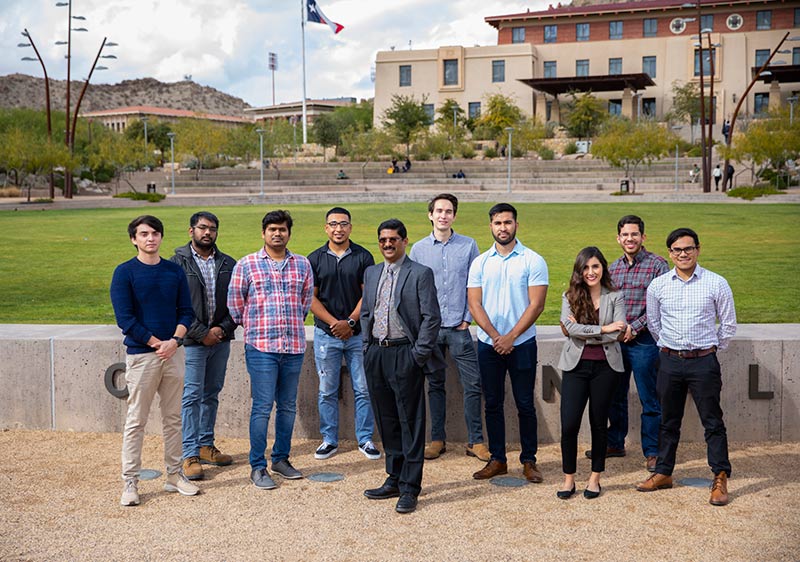UTEP Receives $1M Grant to Develop Advanced Materials to Withstand Extreme Environments
Last Updated on December 02, 2019 at 12:00 AM
Originally published December 02, 2019
By UC Staff
UTEP Communications
The University of Texas at El Paso was awarded a $1 million grant from the U.S. Department of Defense to develop advanced high-electrical strength materials for extreme environment applications.

The grant’s principal investigator is Ramana Chintalapalle, Ph.D., professor of mechanical engineering and director of UTEP’s Partnerships for Research and Education in Materials (PREM) Center for Advanced Materials Research. Together with co-PI Arturo Bronson, Ph.D., professor of mechanical engineering, the pair will lead graduate and undergraduate students in the research effort as part of a technical program under the supervision of the U.S. Air Force Office of Scientific Research.
“The challenging problem the scientific and engineering community is currently facing in this 21st century is the design, discovery and development of novel functional materials, which will have an impact on the next generation aerospace applications,” Chintalapalle said.
The Center for Advanced Materials Research works on fostering next-generation materials research by a team of faculty with engineering and science students from diverse backgrounds, through collaborations with an existing Materials Research Science and Engineering Center (MRSEC) funded by the National Science Foundation at the University of California, Santa Barbara. The center’s main focus is on energy and biomaterials in its mission to enhance the participation and advanced degree attainment of underrepresented minority students in materials science and engineering.
Anil Krishna, Ph.D., a graduate research associate, said the grant will help students working in the PREM Center for Advanced Materials Research to extend their abilities and knowledge.
“Being employed by the program gives us real life experience and allows students to gain tremendous relevant experience,” Krishna said. “This will be very helpful for students who go on to different industries or national laboratories or academics where they can implement what they learned here.”
This grant will help with the development of an advanced atomic layer deposition (ALD) system to produce simple and complex electronic, optical and optoelectronic materials with a high structural and chemical quality, and enhanced functional device performance. This will result in materials that can maintain structure and performability in extreme environments, where thermal stresses, thermo-chemical reactions and phase transformations are often present.
While the primary area of research is to realize the unique nanostructures of high electrical strength materials, the system will immediately impact associated ongoing studies involving high-temperature alloys, simple/complex ceramics, and metal/ceramic composites relevant to the high-power electronics and optoelectronics in defense and aerospace technologies. Faculty, staff and students from UTEP’s Center for Advanced Materials Research will be the first on campus to produce materials through ALD and investigate a wide variety of materials for defense-related applications.
“The ultimate goal of the project will be using the advanced ALD system to fabricate unique materials, especially under nonequilibrium, and understanding the interplay between processing conditions, microstructure and optical/electronic properties,” Chintalapalle said.